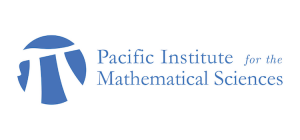Summer School 2017
Theme: Financial Mathematics and Actuarial Sciences
Time and location: July 3 – 28, 2017, University of Prince Edward Island
School Directors: Dr. Alexander Alvarez, Dr. Gordon MacDonald, and Dr. Nasser Saad.
The summer school is intended for graduate students and promising undergraduate students from all parts of the world. Each participant is expected to register for at least two of the three courses. Each course consists of three hours lecture sessions per day for two weeks. These are graduate courses approved by University of Prince Edward Island and we will facilitate transfer credit to the extent possible.
Courses
- Equity-Linked Life Insurance (July 3 – July 15)
Instructors: Dr. Alexander Melnikov, University of Alberta.
Description: The dynamics of financial industry has changed since the beginning of 1970s due to financial innovations and new quantitative methods. Insurance industry, occupied with the traditional insurance, did not react to these innovative changes, and in the beginning of the 1980s went through a fairly difficult period of instability. Thus, actuarial theory and practice had to be enriched by contemporary techniques and methods of mathematical finance. It was necessary to incorporate a new randomness in actuarial calculations, stemming from the financial randomness of insurance guarantees. In life insurance there appeared contracts in which the payoff is connected to the market value of risky assets and investment portfolios. It is the equity-linked life insurance or insurance linked to risky assets of financial markets. Therefore, it is not a surprise that the famous Black-Scholes formula appears in many actuarial calculations as their integral part. The course of lectures presents a wide spectrum of theoretical methods and techniques developed in mathematical finance and actuarial science in the last two decades. The lectures contain a number of results, formulas and illustrative materials of pricing and hedging of equity-linked life insurance contracts. The essence of our approach is partial or imperfect hedging (quantile, efficient, mean-variance, CVaR), developed in this context for different financial market models (Black-Scholes, Jump-diffusion, Regime-switching etc). The course of lectures will be useful for a wide audience: from graduate students to experts and practitioners working in the area of life insurance and finance. .
- Statistical Modeling in Finance and Insurance: from data to real-time decision making (July 17 – July 28)
Instructor: Dr. Manuel Morales, University of Montreal.
Description: This is an introductory course to some statistical techniques and algorithms that are readily used in solving practical problems in finance and insurance. The general objective is to provide the students with a wide perspective of statistical tools used in finance and insurance to give practical solutions to specific tasks and questions encountered along the decision-making process. This course is mainly articulated around the empirical analysis of specific practical examples. The set of techniques and application that will be covered during the course include: Principal Component Analysis, Self-organizing Maps and Classification Regression Trees. The student will be invited to work with data in order to develop and implement technical solutions using a programming language..
- Stochastic Control with applications to Mathematical Finance (July 17 – July 28)
Instructor: Dr. Agnès Sulem, Centre de Recherche Inria de Paris
Description: The aim of this lectures is to give an introduction to stochastic control theory with applications in mathematical finance.
We shall start with the discrete time case and study optimal stopping and optimal control of Markov chains ; we will provide associated dynamic programming algorithms and apply them to the study of American options and portfolio-selection problems. We shall then turn to stochastic control in continuous time. We shall address both theoretical issues (Dynamic Programming, stochastic Pontryagin principle) and numerical methods for the associated partial differential equations. The applications will be focused on applications in finance such as option pricing and hedging, risk minimization, portfolio optimization.
To Apply
Please download the application form in one of the formats below, fill it out and return it to nsaad@upei.ca by May 15, 2017:
Contact Information
For further information contact
- Dr. Alexander Alvarez
School of Mathematical and Computational Sciences
University of Prince Edward Island
Charlottetown, Prince Edward Island
Canada C1A 4P3
email:alalvarez@upei.ca - Dr. Gordon Macdonald
School of Mathematical and Computational Sciences
University of Prince Edward Island
Charlottetown, Prince Edward Island
Canada C1A 4P3
email:gmacdonald@upei.ca - Dr. Nasser Saad
School of Mathematical and Computational Sciences
University of Prince Edward Island
Charlottetown, Prince Edward Island
Canada C1A 4P3
email:nsaad@upei.ca



